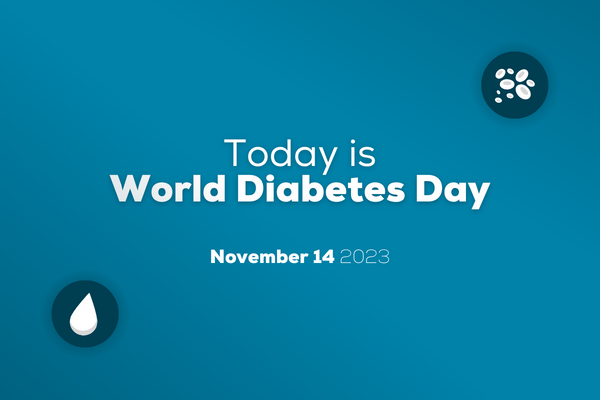Today is World Diabetes day
Diabetes and bone health
Diabetes is a chronic disease that occurs either when the pancreas does not produce enough insulin or when the body cannot effectively use the insulin it produces.
On this World Diabetes Day, we shed light on a critical but lesser-known aspect of diabetes – its impact on bone health. Research reveals that individuals with type 1 or type 2 diabetes, face an elevated risk of bone fragility and fractures. This heightened risk can also exist when diabetic patients have higher bone mineral density (BMD; bone mass) than their non-diabetic counterparts.
The mystery deepens if we consider that increased BMD should typically correlate with stronger bones. However, in diabetic patients, the risk of fracture remains high when BMD is non-osteoporotic, pointing towards other underlying factors such as compromised bone quality. Notably, deteriorated bone microarchitecture and increased cortical porosity are prevalent in diabetes. This skeletal fragility appears to be, in part, linked to the accumulation of advanced glycation end products in bone, which makes bone more susceptible to fractures. Furthermore, those with uncontrolled blood sugar levels face an even greater risk.
A comprehensive review published by an expert working group of the International Osteoporosis Foundation and ESCEO, encompassing several studies including a large cohort of 44,543 individuals, found that use of trabecular bone score (TBS) can offer better fracture risk predictions in diabetes, independent of BMD1. When adjusting BMD or FRAX® for TBS, fracture risk assessment became more accurate, emphasizing the need for a comprehensive approach to understanding and managing bone health in diabetic patients.
Download your Practical Guide to Trabecular Bone Score (TBS) in Clinical Routine now:
Preventing and managing osteoporosis for individuals with diabetes
The management of osteoporosis in patients with diabetes involves a multifaceted approach, addressing both the underlying metabolic conditions and optimizing bone health. While guidelines may vary across regions and professional organizations, the following are general recommendations for the management of osteoporosis in diabetes:
Screening and assessment
- DXA scans (BMD and TBS) for postmenopausal women and men aged 50 and over with diabetes, especially those with additional risk factors for fractures.
- Consider the use of tools like FRAX® to predict 10-year fracture risk, but be cautious as it may underestimate the risk in patients with Type 2 diabetes.
- Adjust BMD and/or FRAX for TBS to fine-tune fracture risk assessment for bone microarchitecture.
Lifestyle interventions
- Advocate for a balanced diet rich in calcium and vitamin D.
- Encourage weight-bearing exercises to improve bone strength and balance exercises to prevent falls.
- Limit alcohol consumption and avoid smoking.
- Education on falls prevention strategies.
Pharmacological interventions
- Physicians can consider the most appropriate anti-osteoporosis medication for treatment of bone loss in diabetic patients. Treatment can be tailored according to individual risk factors and the severity of osteoporosis.
- Monitor patients on antidiabetic medications known to impact bone health, such as thiazolidinediones, as they may increase the risk of fractures.
Optimal diabetes management
- Achieve and maintain good glycemic control to reduce the accumulation of advanced glycation end products in bone tissue.
- Physicians can regularly review antidiabetic medications and consider their potential effects on bone health.
Regular monitoring
- Physicians can periodically reassess BMD and TBS, and adjust the management plan as needed.
Patient education
- Improve awareness and education on the increased risk of osteoporosis and fractures related to diabetes.
- Provide information on the importance of medication adherence, especially for those prescribed osteoporosis treatments.
It is important to note that these are general guidelines, and specific recommendations may differ based on the individual patient’s health status, regional guidelines, and updates in clinical research.
Always consult with a healthcare professional or specialist for tailored advice and management strategies.
References

